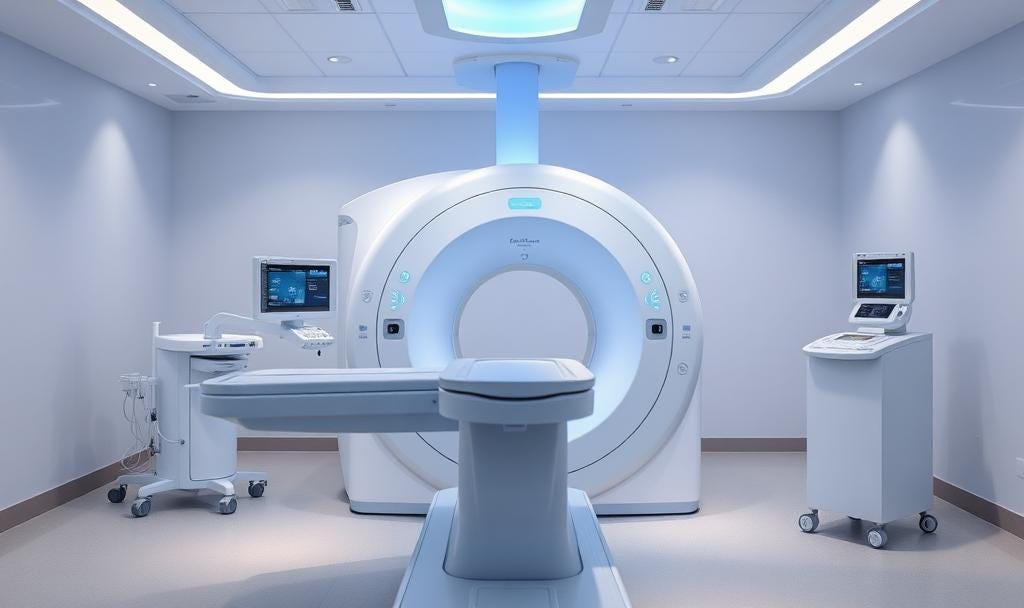7 Ways to Prevent Lung Cancer & Screening Decisions
Here are 7 ways to help you prevent lung cancer, before ever needing screening, along with my thoughts on lung cancer screening.
UPDATED: September 15, 2025
Welcome to the Healthy Aging Newsletter, a free publication translating trustworthy medical research into simple habits to age well, free of chronic disease. I’m Dr. Ashori, a family medicine doctor turned health coach.
A recent article by Dr. Peter Attia addressed the importance of lung cancer screening even if you’ve never smoked cigarettes. Cancer screening is an important topic whether you’re a Medicine 2.0 or 3.0 believer.
Before deciding to screen, make sure you’re doing everything possible to prevent lung cancer. Here are 7 well-known ways to prevent it.
Preventing Lung Cancer
Here is what I fished out from the literature when it comes to preventing lung cancer. And, as with anything health related, it’s not about perfection but taking a few steps in the right direction.
1. Radon Exposure
Radioactive radon gas is a well-known carcinogen and we often are exposed to it from soil through our basement walls. For others, their well water could be a source. There are simple but not always cheap ways to remedy building to protect against this gas.
2. Air Pollution
Air pollution, especially particulate matter <2.5 microns in size (PM2.5), causes oxidative stress, DNA damage, and chronic inflammation. The source of it is car exhaust, industrial processing, wood burning, and wildfires. It’s the long-term exposure that’s the main concern.
Also consider the following indoor pollutants:
Candles
The occasional candle and incense, not a problem!
3. Secondhand Smoke
The main concern here is repeated, long-term exposure of secondhand smoke from cigarettes. This would normally happen in a household or workplace.
My patients ask me about going to restaurants, cafes, and bars, especially overseas where people smoke, I’m generally not too concerned about such infrequent exposures.
4. Genetic Predisposition
EGFR is one of the most common mutations found in lung adenocarcinoma in never-smokers. And we see genetic propensities in East Asians and females. If you have a strong family history, get screened for this.
EGFR is a protein on the surface of cells that helps them grow and divide. A mutation of this can cause them to be permanently active, leading to uncontrolled cell growth.
Fortunately, we also have developed targeted therapy if such mutations exist.
5. Prior Chest Radiation
This is more intuitive since if you’ve had some radiation to the chest for childhood or other cancers your oncologist would likely screen you for lung cancer.
Chronic damage and inflammation of lung tissue increases the risk of lung cancer in never-smokers.
6. Occupational Exposures
Asbestos, diesel exhaust, arsenic, and silica from working in factories or manufacturing are potential risk factors, depending on duration and intensity of exposure.
Have you replaced your car’s cabin filter recently?
7. Chronic Lung Disease
Pulmonary fibrosis and other problems with the lungs that lead to scarring of pulmonary tissue increase the risk of developing cancer.
Also consider a higher risk for those with:
COPD
Emphysema
Recurrent pneumonias
BONUS: Lowering Inflammation
Maybe even more important than this lung-specific list so far is decreasing your body’s overall inflammation.
Here are the common reasons the body experiences inflammation, cell damage, with potential risk of cancer in the future:
Visceral fat
Sedentary lifestyle
Highly processed diet
Not enough fiber in your diet
Stress
Poor sleep
Insulin resistance
Fatty liver disease
When to Screen for Lung Cancer?
A CT scan for lung cancer screening is generally low in radiation and there is no contrast used. You can pay cash and have it done for around $100. So, not too many barriers here.
But those of us who’ve ordered these tests know that many times the results are inconclusive. We have to have a tough discussion with the patient and need to repeat the low-dose CT (LDCT.)
This has the added unnecessary stress the patient will inevitably experience.
Perhaps a better strategy would be to discuss with your doctor what you’d be willing to do if you knew that you had any kind of lung cancer, especially early lung cancer.
Then decide how much screening anxiety you’re willing to deal with and how much post treatment anxiety (the fear that the cancer will return, the follow-ups screens you have to do) you can tolerate.
How I Decide for Myself
Nearing 50, my risk is low. A LDCT may find a nodule early but it’s far more likely that it will lead to unnecessary anxiety and angst.
If I end up with lung cancer I would decide based on how advanced the cancer is to treat or not treat. In the meantime, I will focus on prevention.
Perhaps this is the difference between someone focused on longevity versus health quality years. There is no right answer, it’s different for each of us.
Also Read …
Book a Call to Discuss Your Health Goals
If you’ve been questioning your prevention strategies for cancer and which screening test to take, I can help. In my health coaching these are the exact topics we discuss to bring clarity and empower you to make the right health decisions.




